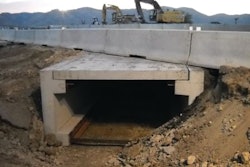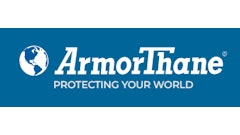
Following the significant price fluctuations of asphalt and polymers tied to crude oil prices in 2007, the Georgia Department of Transportation (GA-DOT) began evaluating the use of granulated tire rubber (GTR) in dense-graded asphalt mixes on low-volume traffic highway projects.
With the cost of asphalt remaining high and recycled tire rubber remaining stable at a lower price, the agency continued using GTR on several projects.
More than 500,000 tons of GTR-modified asphalt have been placed to date.
“Granulated tire rubber is a product that provides long-term supply and presents a more cost-effective and competitive way to modify asphalt,” said Peter Wu, P.E., Ph.D. from the Office of Materials and Research at the GDOT. “The department is always looking for ways to provide taxpayers with a greater value. Rubberized asphalt may be a sustainable solution.”
Based on successful field performance and laboratory testing, the agency used GTR modification in premium open-graded friction course (OGFC) mixes in September 2011 about 80 miles outside of Atlanta on the six-lane Route 247 in Bibb County. The OGFC mix was produced by Reeves Construction Company located in Macon, Georgia.
“The material is placed with standard paving equipment and is easy to handle,” said Wayne Marshall, an asphalt engineer with Reeves Construction. “The additive trans-polyoctenamer (TOR) helps workability and reduces fume. The advantage of the plant mix is that we can make a high-quality modified asphalt on site, on-demand, reducing costs to the contractor and ultimately to the owner agency.”
The 5-mile test section will help to evaluate the performance of two different methods of GTR addition to mix and the standard 76-22 polymer modified asphalt: The two GTR modified binders used a performance grade (PG) 67-22 base asphalt that was upgraded to a PG 76-22 by adding a plant mix of TOR and GTR.
One GTR plant mix will use the fiber distribution equipment already attached to the hot plant to add the GTR and TOR into the mixing drum. The other will blend the base asphalt using a mobile blending unit with the GTR and TOR before it is added to the mixing drum. The GTR is added at about 11 percent of the weight of the liquid asphalt. The TOR is proportioned at 0.45 percent of the rubber. The third section will contain a conventional styrene butadiene styrene (SBS) modified asphalt pre-blended at the asphalt terminal.
“If Georgia starts using GTR more routinely, it will be a great example for others on how joint technical collaboration throughout the supply chain can lead to better and more cost effective roads,” said Ryan Alleman, director of asphalt with Lehigh Technologies, which processes product from Liberty Tire Recycling into a sustainable micronized rubber powder (MRP) that is added to the asphalt formulation. “We are pleased to be working with forward-thinking leaders and helping make Georgia roads greener with local suppliers.”
Along with serving as a cost-effective solution to high-cost polymers, the GTR mixes provide greater durability over time. The endurance and crack resistance that GTR provides makes it a great material to use with OGFC mixes. Material collected from the job site will be taken to the National Center for Asphalt Technology (NCAT) for further testing and evaluation.
"NCAT is proud and excited to be a part of this project. It is our goal to help the industry develop asphalt mixtures which are not only environmentally sustainable, but also durable under trafficking,” said Richard Willis, assistant research professor at NCAT. “This project is an opportunity for us to get a better understanding of how ground tire rubber truly influences asphalt mixture properties.”
The NCAT laboratory study will be completed by spring of 2012 with the results published on the web. GA-DOT will monitor the performance of the OGFC mix in the field.




















